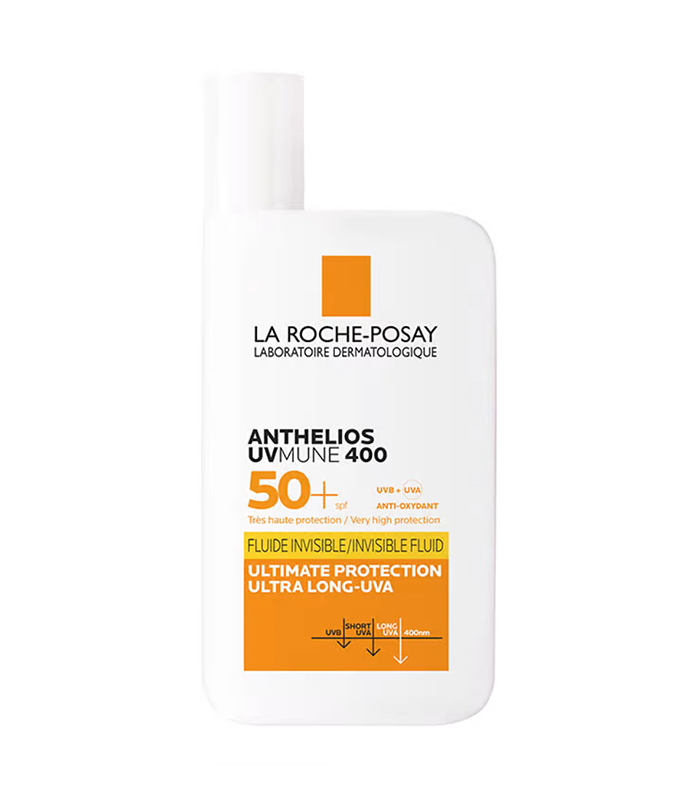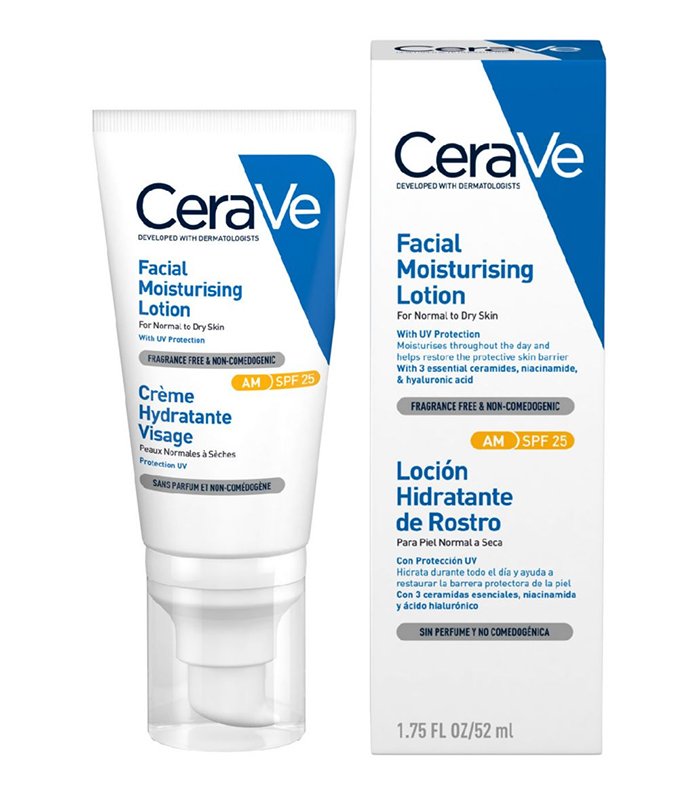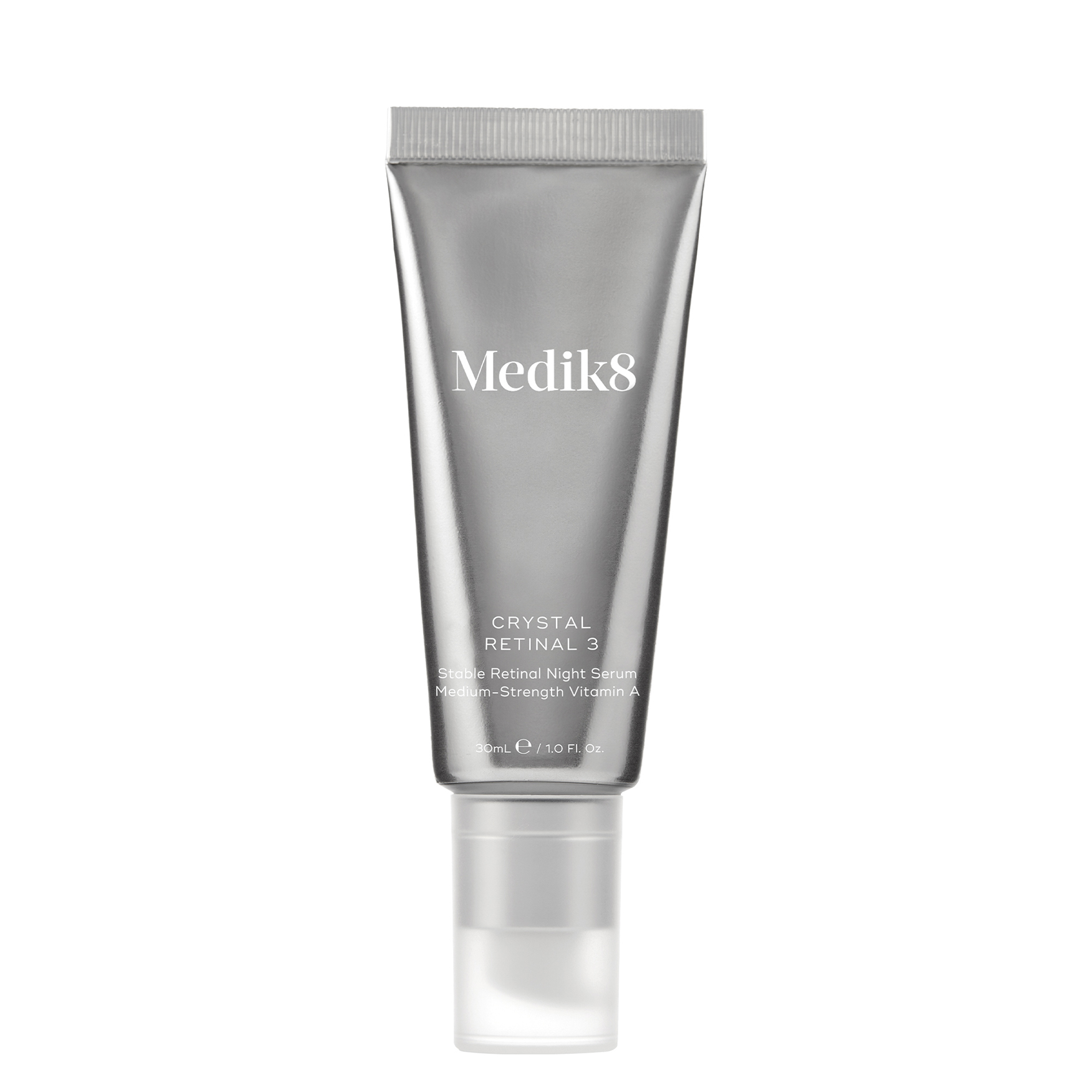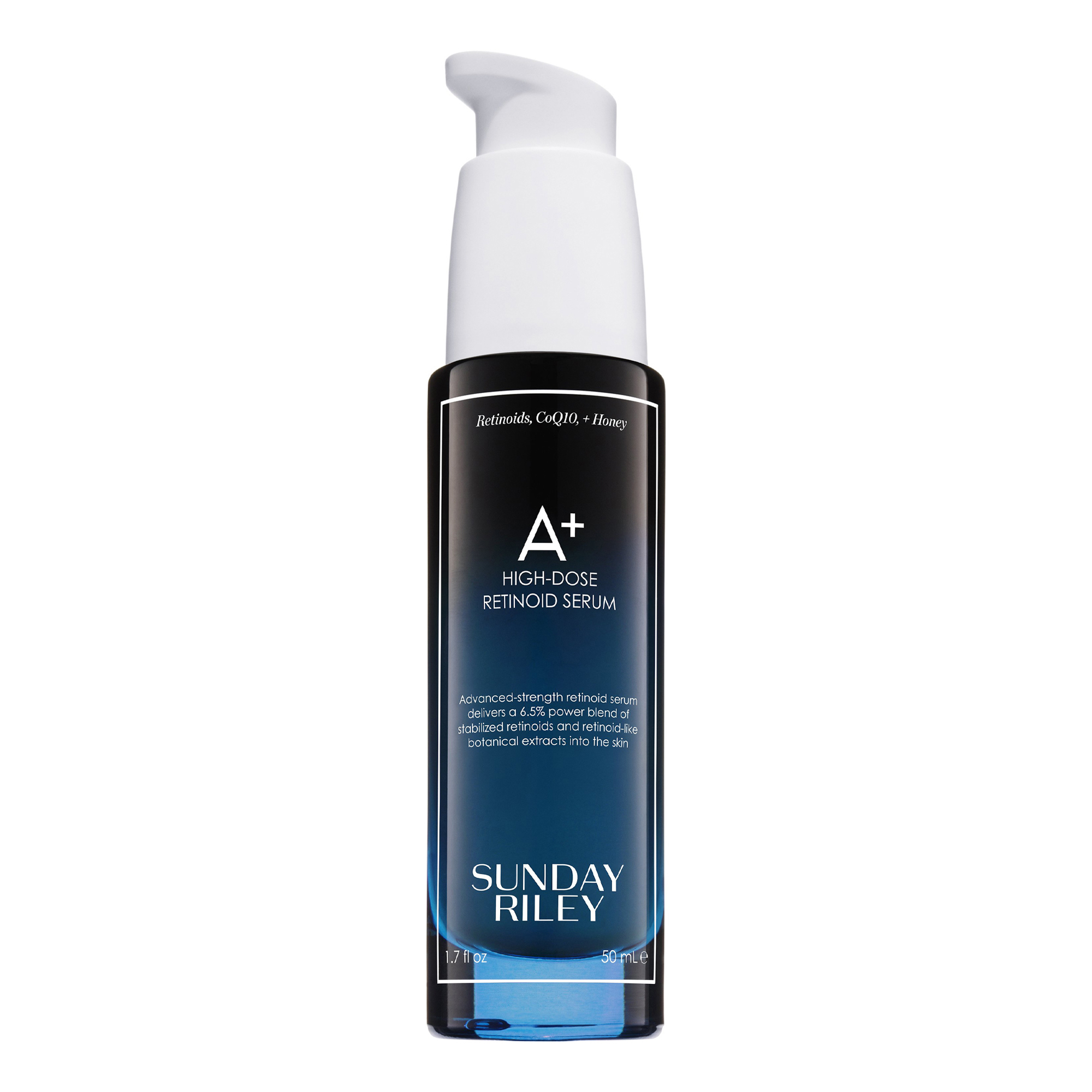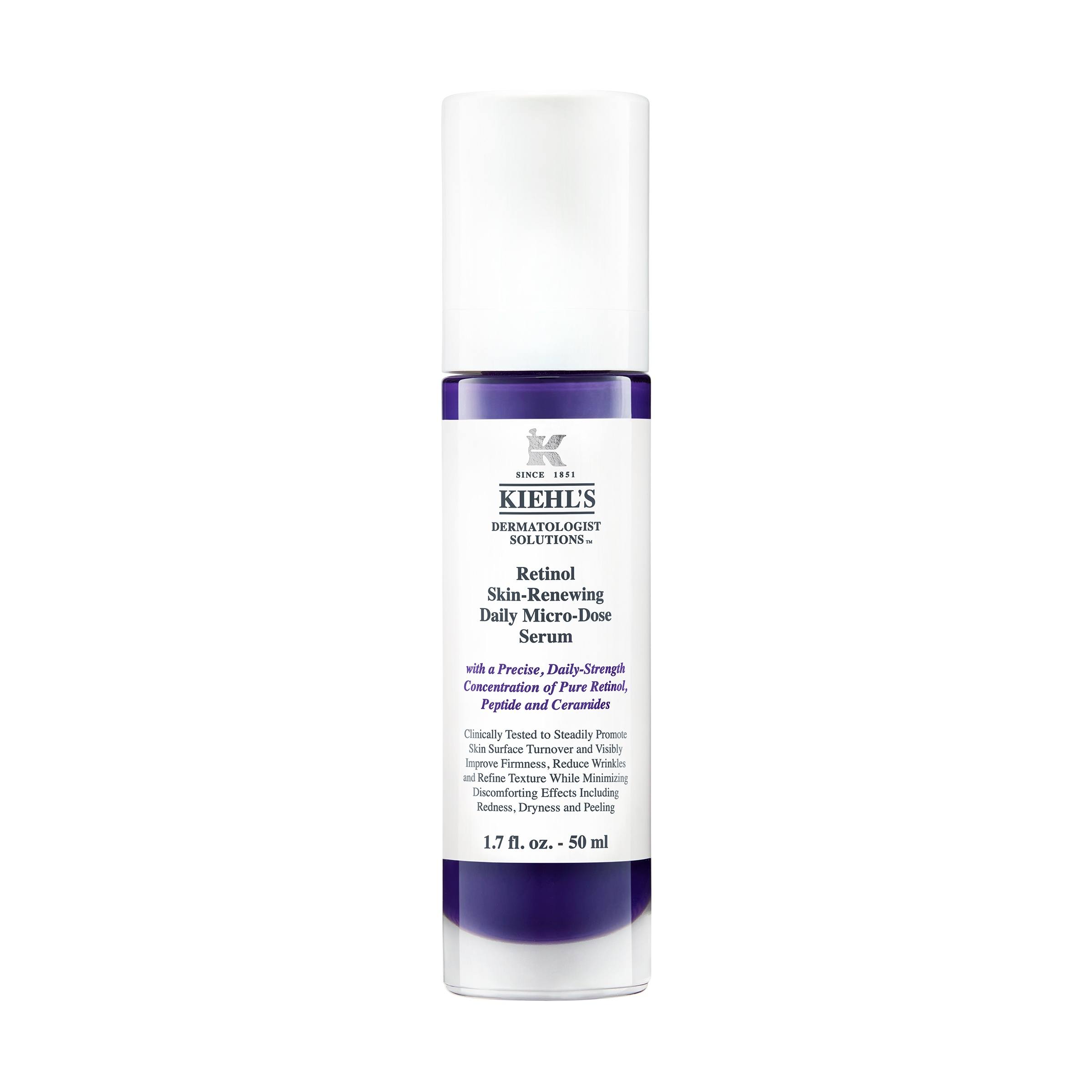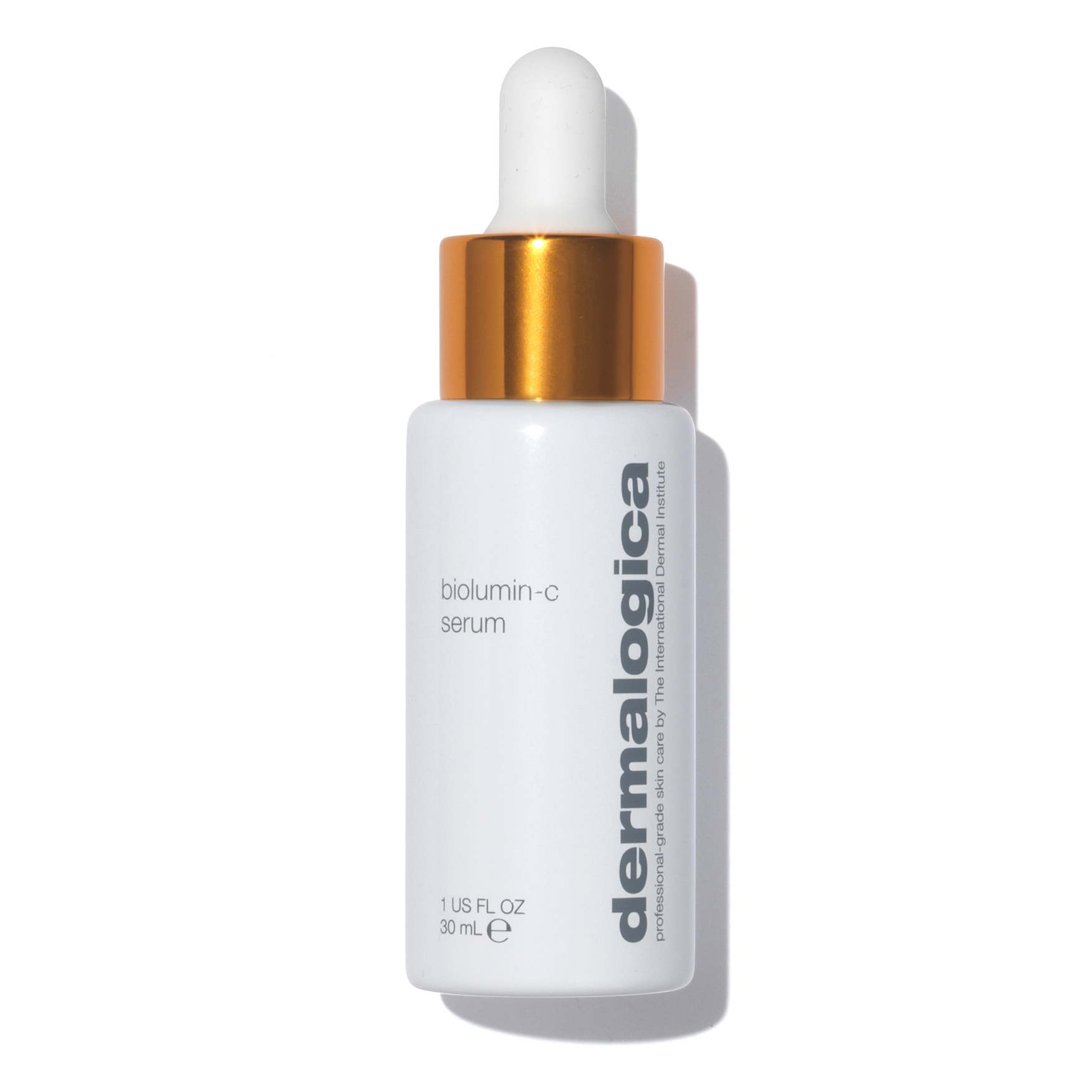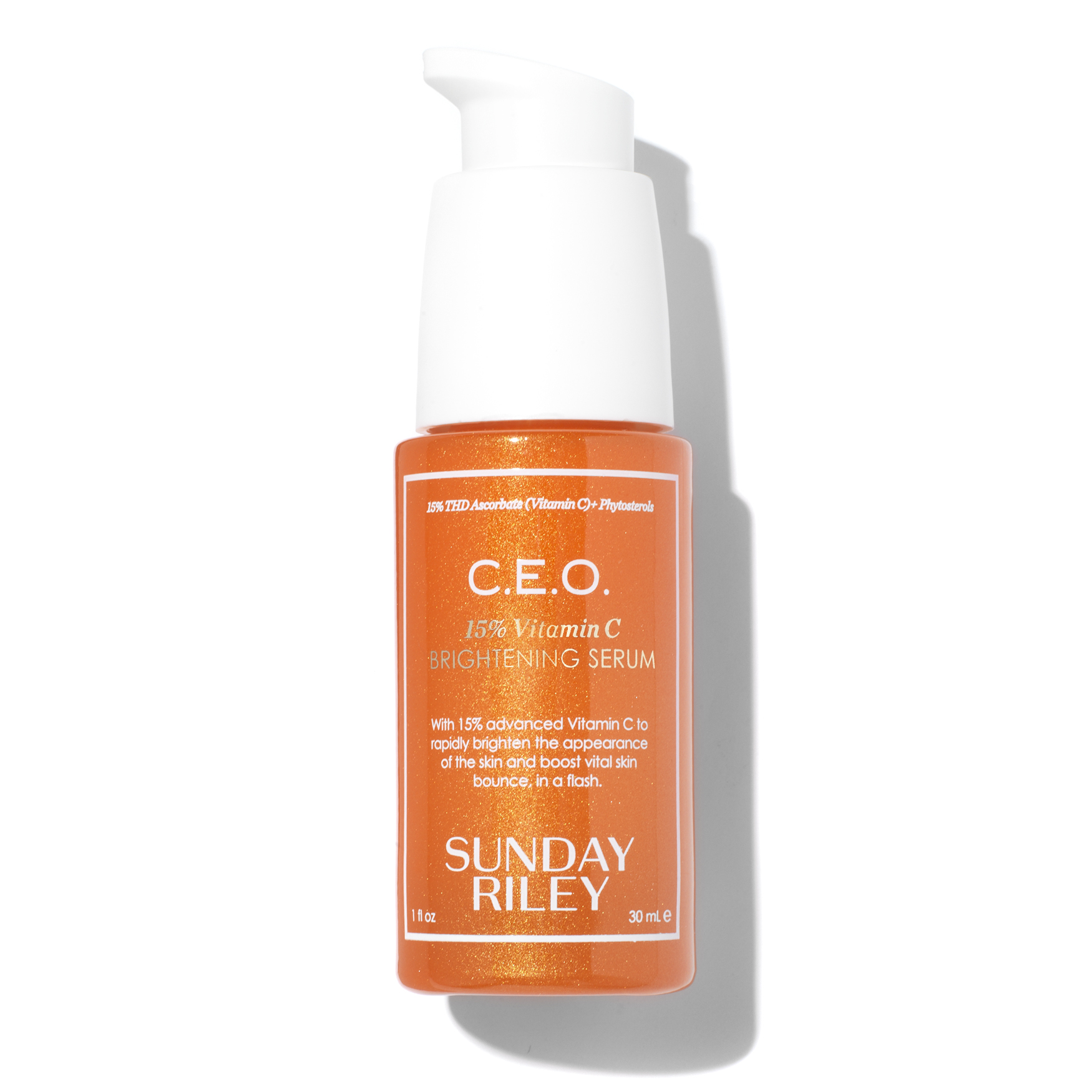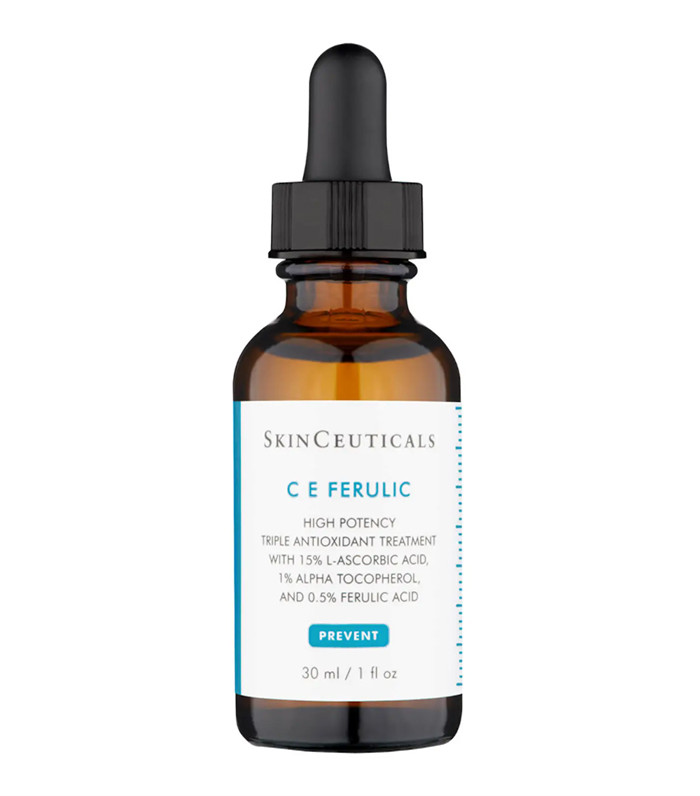I Have Acne Scarring, and These Are the Only Products That Help

For most of my life, I have been blessed with pretty clear and even skin. While many of my friends battled with acne at school and throughout their teenage years, my skin stayed clear and blemish-free. That was until I hit my late 20s and I started to develop adult acne. Since then, I struggle to name a time that my face hasn’t had some sort of breakout or blemish. It is as though every time a spot started to heal, another would crop up. And so, I have been in a three-year cycle of breakouts, healing and scarring.
However, since seeking professional help from a dermatologist last year, things have been looking up. I haven’t had a notable breakout in four months (which is almost miraculous), and in terms of active spots, my skin is probably the clearest it has been in years. However, one thing I just can’t seem to get on top of is the scarring. To the naked eye, my complexion might still appear to have acne, but in reality, it’s just ongoing scarring.

As a result, I have invested a lot of time into researching acne scarring and adjusting my skincare routine in a bid to get rid of it. I have spoken to some of the top dermatologists and aestheticians around in a bid to get to the bottom of my scarring issues. And since adopting their advice, I have seen significant improvement. So much so that my complexion is now the clearest and most even it has looked in many years. So without further ado, keep scrolling to read everything there is to know about treating acne scarring and to shop the best products for the job.
The Different Types of Acne Scarring
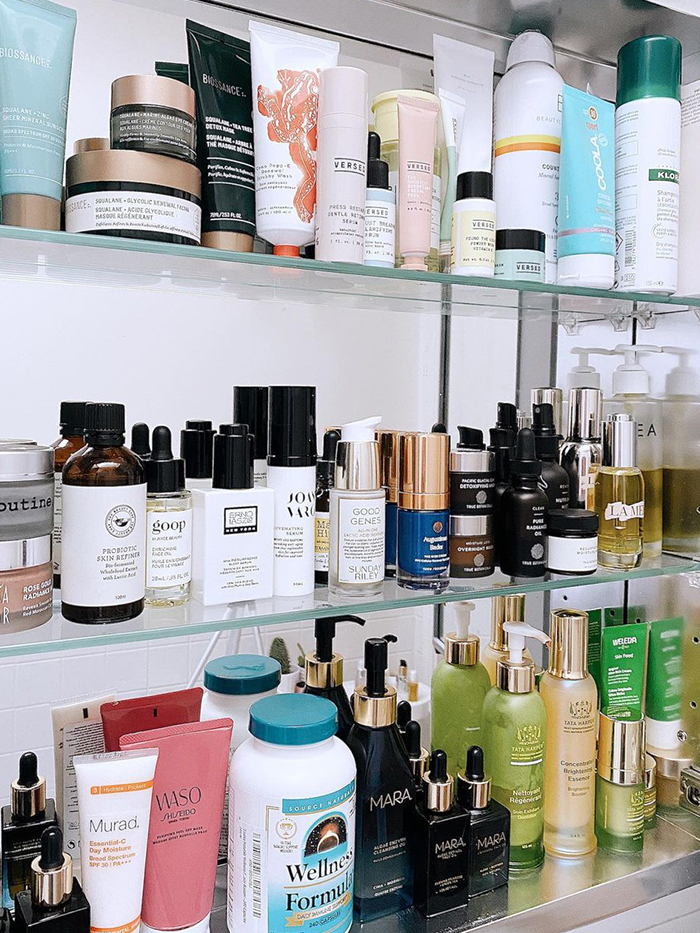
First of all, let’s delve into why some of us get acne scars. "Acne scarring occurs during the healing process [of a spot]. It happens when there is an imbalance in collagen biosynthesis,” explains Zainab Laftah, consultant dermatologist for La Roche-Posay. "It can present as ice-pick scars (deep, narrow and pitted), rolling scars (broad depressions with sloping edges), boxed scars (broad depressions with sharp edges) and hypertrophic scars (elevated),” she adds.
However, it’s also worth noting here that scarring isn’t always a textural change. In many cases, acne scarring can simply present as pigmented changes without causing any noticeable differences to texture. Medical consultant Ifeoma Ejikeme explains, "Acne scars can be a change in colour or texture. Changes in colour could present as hyperpigmentation or post-inflammatory erythema (redness).”
How Can Acne Scarring Be Prevented?
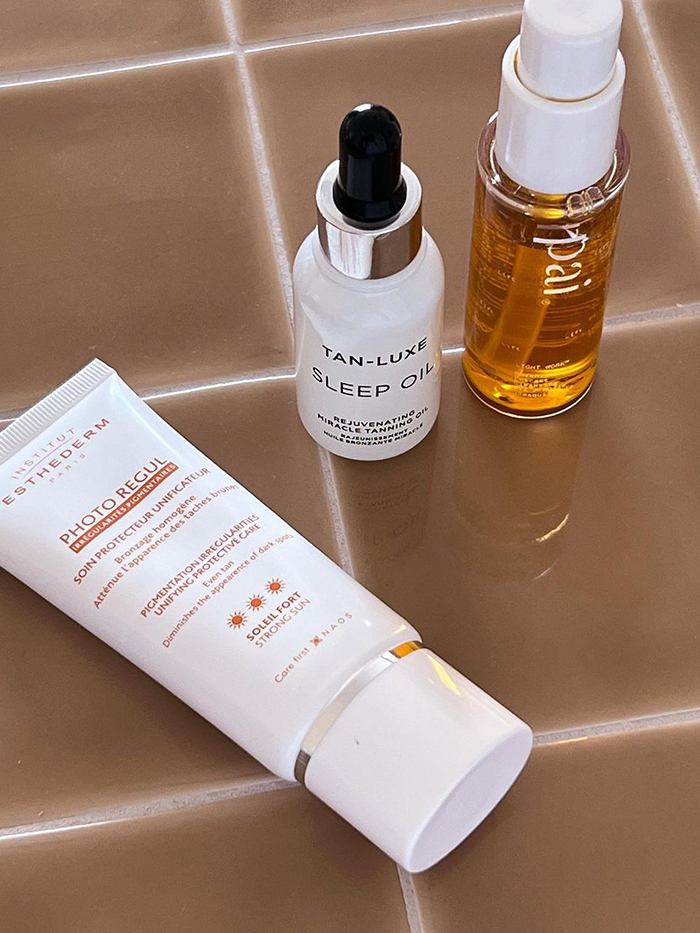
The best way to ensure you don’t have to deal with acne scarring is by helping to prevent it. As with everything in skincare, prevention is almost always easier than treatment. "I know it is such a cliché, but the number one thing to prevent acne scarring is not picking at your spots,” reveals Ahmed El Muntasar, NHS and cosmetic doctor. "For people of colour specifically, there is a risk of basic inflammatory hyperpigmentation, which means the spot is causing inflammation in the skin. The cells responsible for melanin production make more melanin around it, and that’s when dark little spots can occur. If you are prone to that, using ingredients like vitamin C will brighten the skin and also prevent it from happening,” he adds.
Another key element in preventing acne scarring is daily SPF application. "A robust skincare routine can minimise the occurrence of breakouts. Using a daily sunscreen also helps reduce scarring,” adds Ejikeme.
How Can Acne Scarring Be Treated?
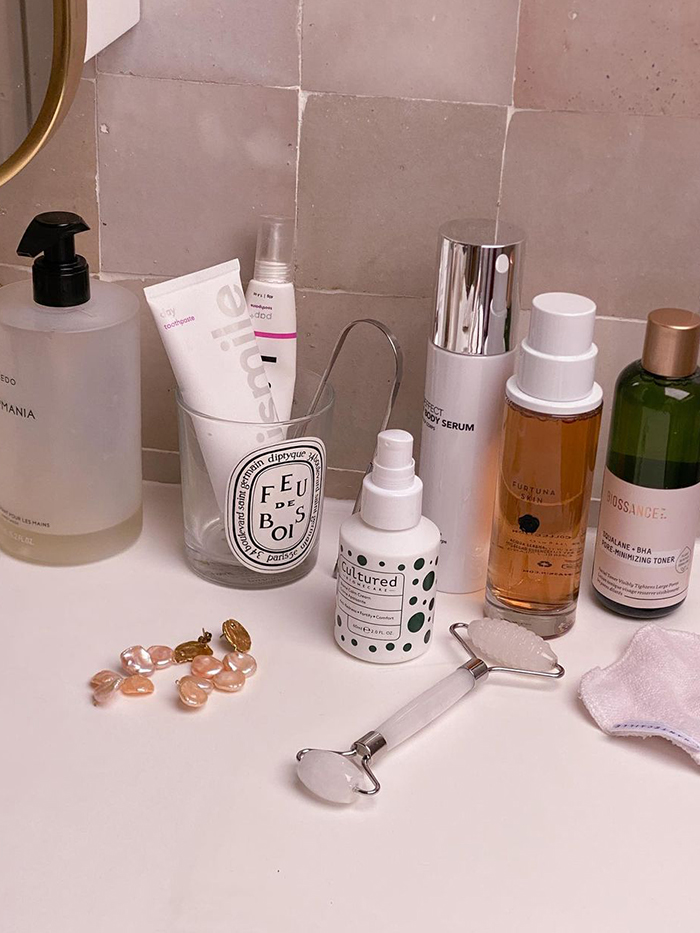
The extent to which scars can be treated and how totally depends upon the type of scarring you have. "It is difficult to erase all acne scars. However, a number of treatment modalities can be used to improve their appearance,” says Laftah. Any scar that has left severe textural change, particularly if that involves indentation in the skin, will typically require clinical treatment. It is best to book in for a consultation with a doctor for such treatments.
"A general rule of thumb is if the scars are indented, you need treatment that lifts off the skin and flattens the scar. Microneedling uses a medical device that creates microscopic holes in the skin that are filled with collagen to flatten it out. Sometimes you can use a touch of dermal fillers on the scar itself. Microdermabrasion or peels could also be an option,” says El Muntasar. Similarly, clinical treatment is also often necessary for extreme raised scarring.
When it comes to pigmented changes, however, treatment can be undertaken at home with skincare products. "Pigmented scars require tyrosinase inhibitors, and redness in the skin can be treated with azelaic acid,” says Ejikeme. When it comes to inflammatory redness and pigmentation, time is also a key healer. "The skin changes will gradually fade with time, and actives including niacinamide, salicylic acid, glycolic acid, azelaic acid and retinoids will help. Careful sun protection is essential to prevent worsening of redness and pigmentation,” says Laftah.
As an all-rounder, retinoids will also help minimise the appearance of scarring, including mild textural changes. "Retinoids are generally a great option. They increase your cell turnover so that fresh skin from underneath comes to the surface quicker. Although, the best option is tretinoin, the strongest form of prescription vitamin A,” reveals El Muntasar.
For the best products to treat mild acne scarring, keep scrolling.
1. La Roche-Posay Effaclar Serum
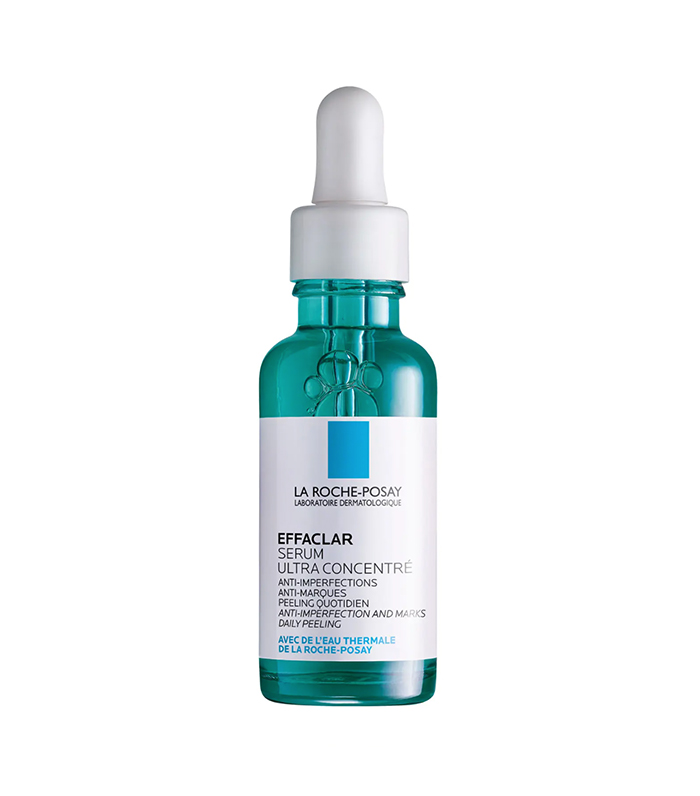
Containing a concoction of niacinamide, salicylic acid and glycolic acid, this lightweight serum is very effective at treating active spots and reducing the chances of scarring at the same time. It aims to reduce pigmentation, scarring and the chance of future breakouts.
2. Clinique Superdefense SPF 40 Fatigue + 1st Signs of Age Multi-Correcting Gel
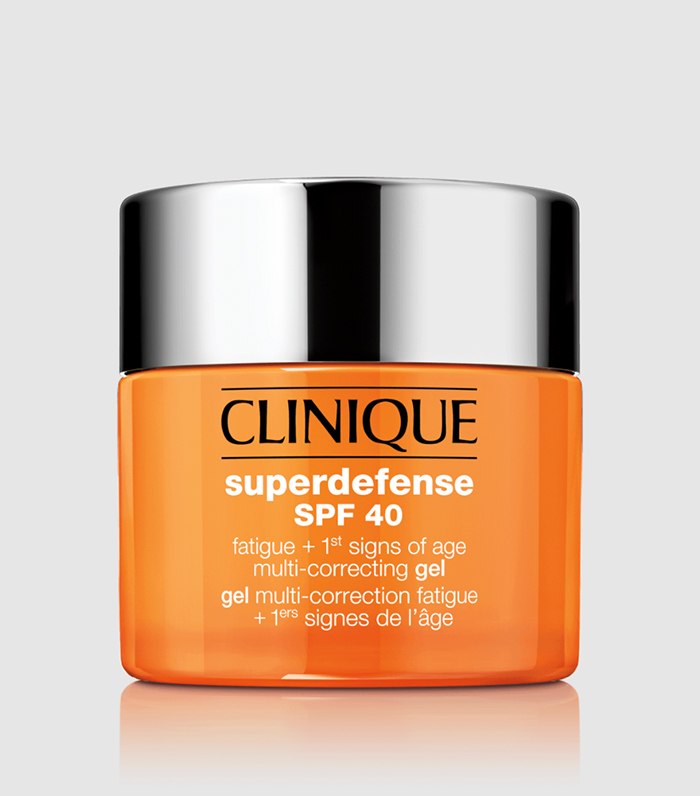
This hydrating gel feels lovely and cooling on the skin, making it a go-to for warmer summer months. It also contains an impressive SPF 40 to protect skin from damaging UV rays. (These can worsen scarring and pigmentation.) Most importantly, it is formulated with a plethora of antioxidants to help reduce pigmentation and protect skin against future dark spots.
3. La Roche-Posay Anthelios UVMune 400 Invisible Fluid SPF50+
4. CeraVe AM Facial Moisturising Lotion SPF25
5. Medik8 Crystal Retinal 3
6. Sunday Riley A+ High-Dose Retinoid Serum
7. Kiehl's Retinol Skin-Renewing Daily Micro-Dose Serum
8. Verso Hydration Serum With Niacinamide
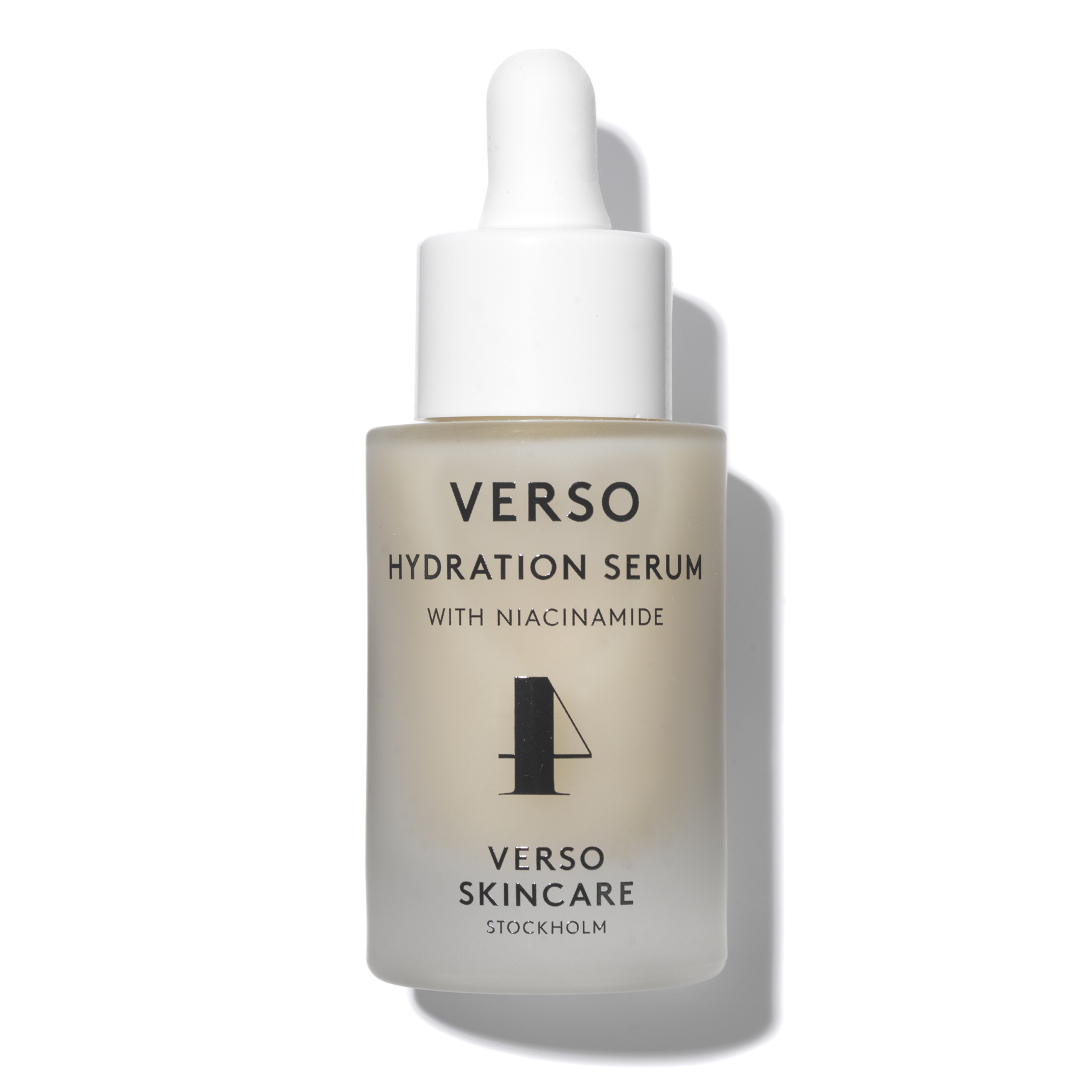
Niacinamide is considered to be one of the most effective ingredients for reducing the appearance of acne scarring without having any major inflammatory skin effects. If you don't think your skin is ready for a retinoid, this hydrating serum will help do the job.
9. Dr. Barbara Sturm Sun Drops SPF50
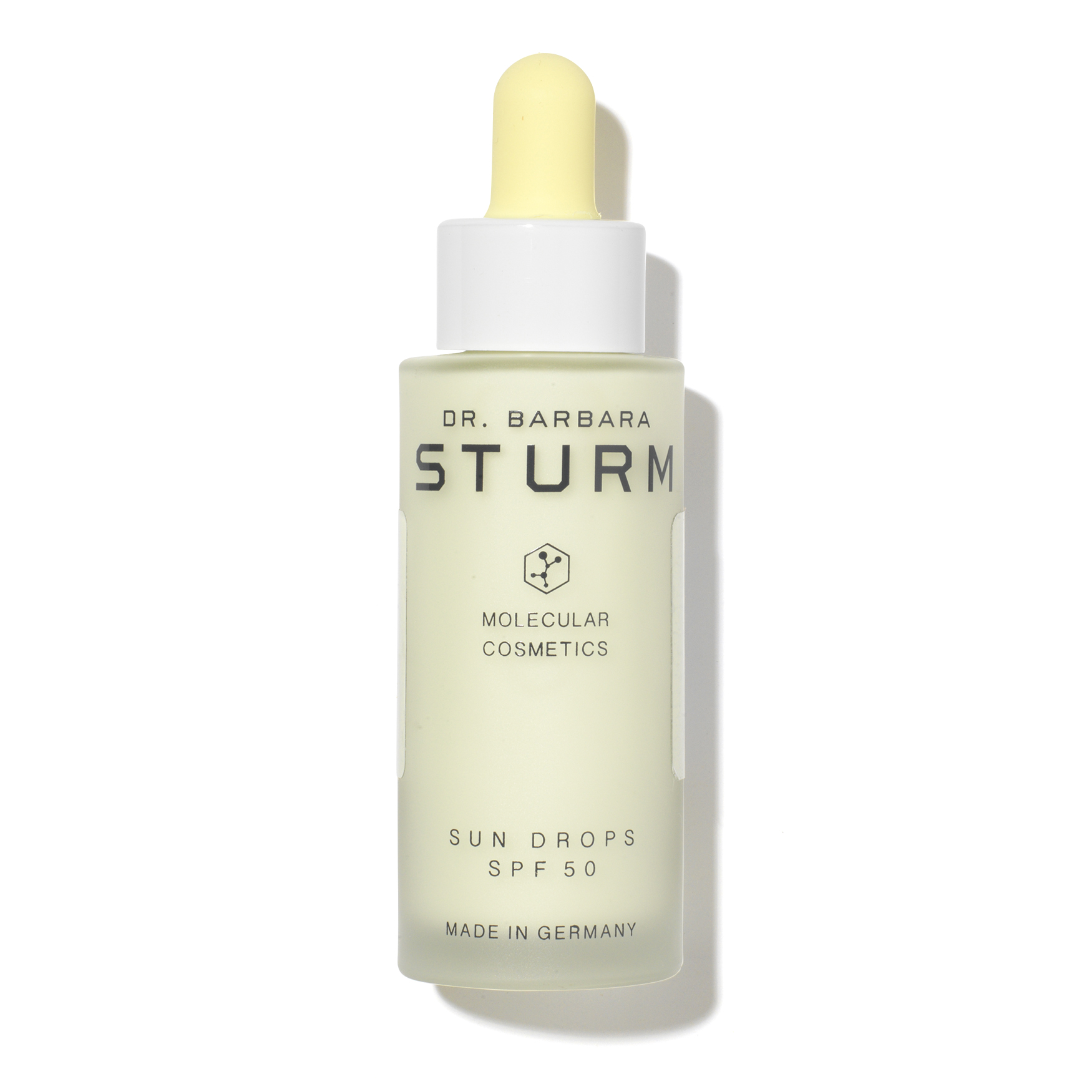
We already know that sun protection is key in both preventing and treating acne scarring. If you hate the way that SPF feels on the skin, this is one of the most wearable and comfortable daily SPFs that I have ever tried. In fact, it's the only one I really enjoy using.
10. Dermalogica Biolumin-C Serum
11. Sunday Riley CEO 15% Vitamin C Brightening Serum
12. SkinCeuticals C E Ferulic
Next up, experts agree this one skincare product is the first step to a healthy glow.

Shannon Lawlor is the beauty director atBest Knockoff Luxury Clothing UK. With over a decade of experience working for some of the beauty industry’s most esteemed titles, including Marie Claire, Glamour UK, Stylist and Refinery29, Shannon’s aim is to make the conversation around beauty as open, relatable and honest as possible. As a self-confessed lazy girl, Shannon has an affinity for hard-working perfumes, fool-proof makeup products and does-it-all skincare.
